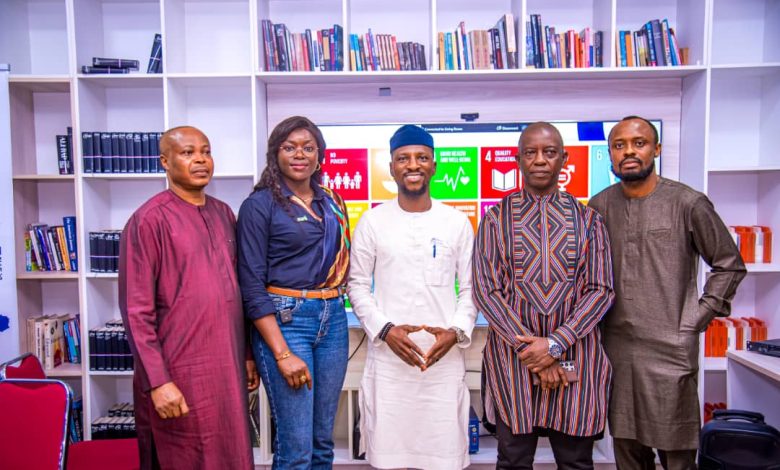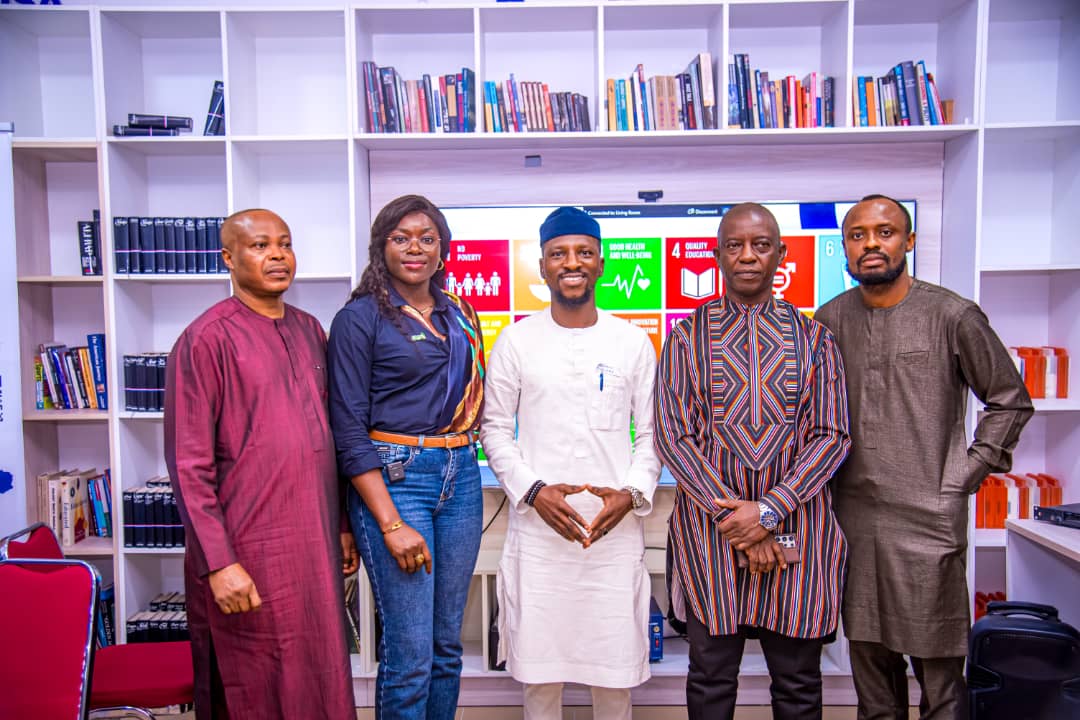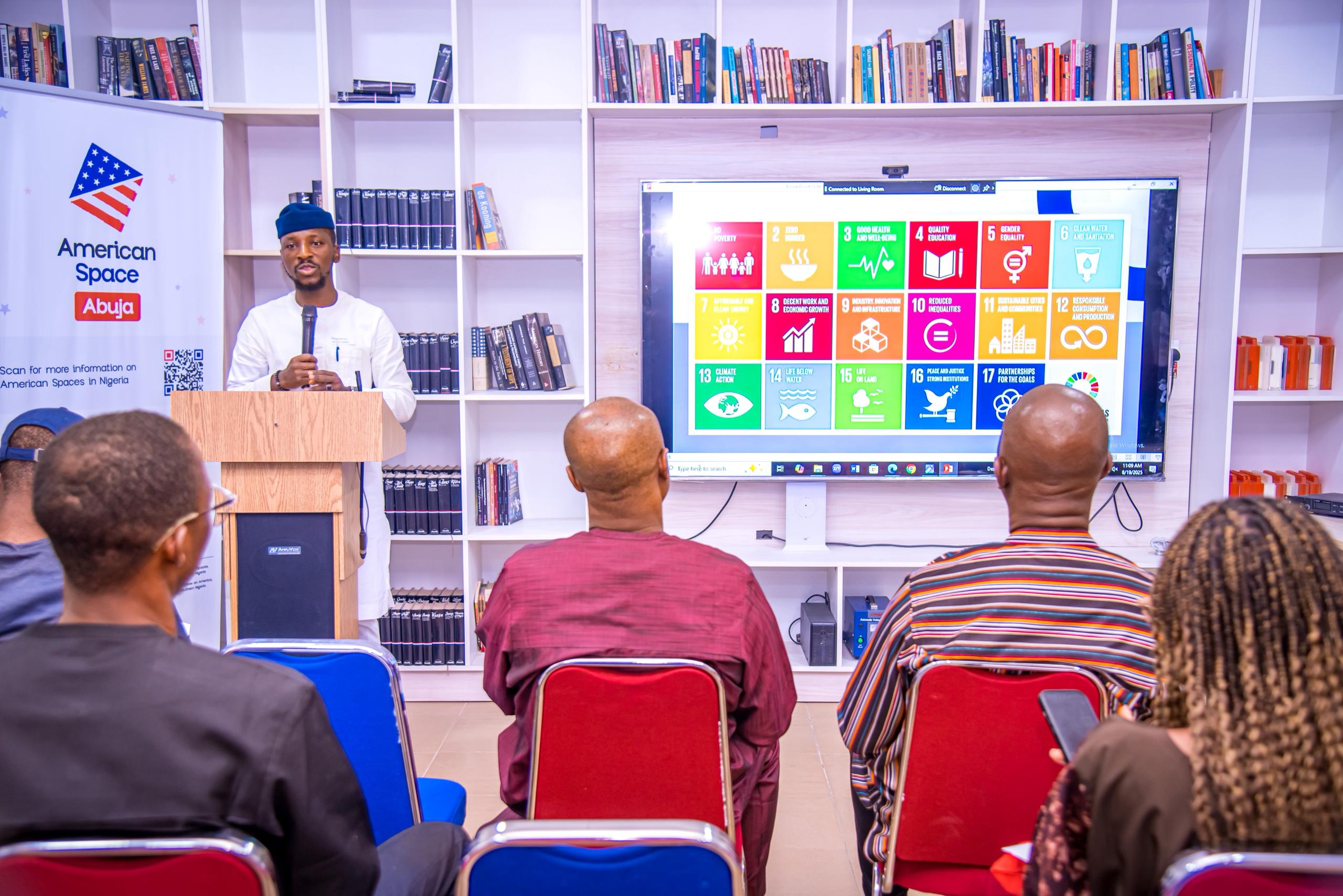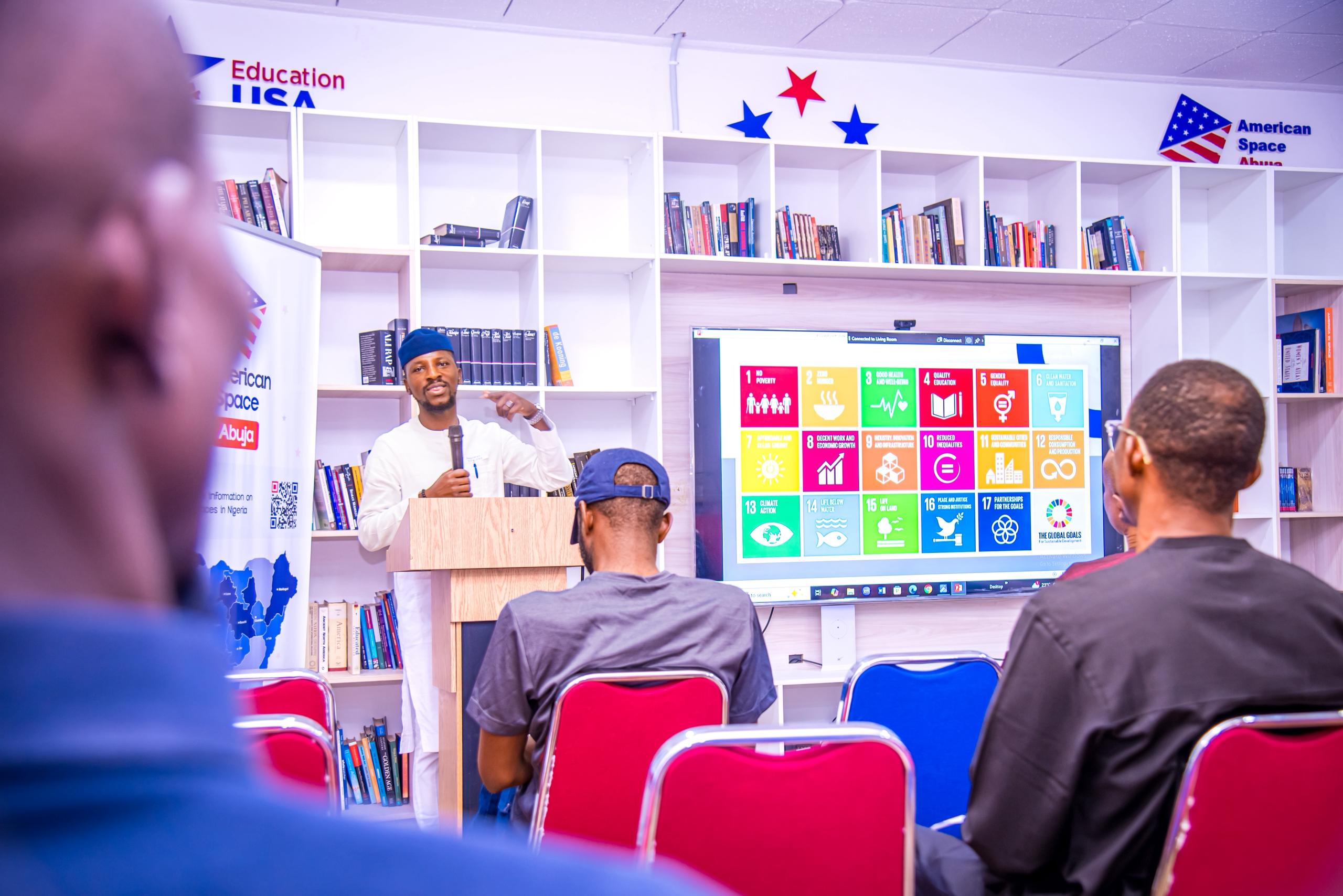Experts Call on Youth to Lead SDG Attainment, Drive Economic Growth


Experts have emphasized the critical and immediate role of Nigerian youth in achieving the Sustainable Development Goals (SDGs) and shaping the nation’s future. They made this appeal at the recent Fireside Chat held at the American Corner, Abuja, themed “Local Youth Actions for the SDGs and Beyond.” They stressed that “real change begins in our communities, and youth are at the center of that transformation.”
Suleiman Oshioke Abdulahi, Convener of the Fireside Chat, opened the session by drawing on his extensive experience in youth empowerment, stating, “When young people are empowered, communities are transformed.” Abdulahi highlighted the local relevance of the global SDG framework: “They touch on jobs, education, climate, and social inclusion—issues we face daily in Nigeria.” He emphasized that the conversations aimed to go “beyond 2030 to imagine the role we, as young Africans, can play in shaping the future” through action and collaboration. He concluded with a powerful call: “Young people are not just beneficiaries but leaders of today. We see the role we play—transforming the future of Africa that we want. And we can only do that by engaging, collaborating, and partnering to make these visions a reality.”
Dr. Nsikak Okon, Acting Executive Director (N-Power) of NSIPA, delivered the keynote address, highlighting Nigeria’s demographic advantage with the largest youth population in Africa at 60%, and describing Nigerian youth as “energetic and innovative.” He challenged young people to recognize their “critical role in nation-building,” emphasizing their importance in “shaping the future of knowledge and digital learning,” driving “startup green enterprises and fintech,” and championing climate action and good governance—citing the “Not Too Young To Run” bill as an example of youth potential.
Adebowale Olorunmola, Country Director (Nigeria) of WFD and guest speaker, advocated for engaging the “real youth” aged 18-20, building their capacity, and involving them early in political discourse—mirroring the success of young leaders in countries like Canada and France. He strongly urged a shift in perspective, stating, “We need to change our mindset from seeing young people as mere beneficiaries of the SDGs to recognizing them as active drivers of change.” He pointed out the paradox that, despite the “Not Too Young To Run” law, “young people are still largely excluded from governance; women and persons with disabilities are also often marginalized.”

Ibrahim Faruk, Program Coordinator for Africa Division at Yiaga Africa and a leading advocate for the “Not Too Young To Run” movement, affirmed that “young Nigerians are taking action in many areas toward achieving the SDGs.”
He emphasized the need to support legislation promoting gender equality, such as a reserved seat for women in the national assembly, to address the “abysmal” representation of women—directly linked to SDG 5. Faruk also challenged the idea of rapid, large-scale expansion for all initiatives, stating, “Scaring is not always the goal. Not every youth-led action needs to be continental. It’s about strengthening local efforts and building from the ground up.” He stressed the importance of learning from failure, citing the multiple attempts of the “Not Too Young To Run” movement before its eventual success. For long-term sustainability, he called for developing a pipeline of younger generations (Gen Z), starting in secondary school, to ensure the continuity of SDG efforts beyond 2030.
He also urged stakeholders to “shift the conversation from projects and programs to people,” to better measure individual contributions and impact.
Sonia Elohor Somuvie, ESG Consultant and Founder of Ecosmart Climate Action Initiative, and a Special Advisor on Environment and Climate, expressed frustration over the slow progress and limited measurable impact of some youth-led initiatives. She shared her experience where over half of the 3,000+ trees she planted were destroyed. She identified systemic challenges, including poor communication from the Ministry of Information, inadequate collaboration among government agencies, and suspicion within local communities toward NGOs. Somuvie underscored the importance of youth being “intentional messengers” to bridge the communication gap between policy and grassroots understanding. She passionately urged youth to “prioritize what is important to us in Nigeria,” encouraging them to “pick up our party cards, participate actively—even if not seeking office—and contribute ideas during meetings.” She concluded with a call for intentional collaboration among youth to sustain progress: “If we collaborate intentionally, we can keep this momentum going.”
Isaiak Ugwueke, Government Relations and Partnership Lead at EyeCity Africa, focused on youth employment (SDG 8). He identified a “systemic gap” between the education and employment sectors, where schools teach outdated information. He proposed bridging this gap through collaboration between employers and educational institutions—such as involving professionals in curriculum development and inviting them into classrooms.
Ugwueke criticized Nigeria’s “credential-based system,” which prioritizes qualifications over practical skills, leading to job-skill mismatches. He asserted, “The problem with youth unemployment is not just training young people with more skills—it’s fixing the system. Schools and the private sector need to work together to solve this.”

The Fireside Chat concluded with a strong call to action for youth to foster collaboration, embrace innovation, and hold institutions accountable. Attendees were encouraged to network and continue the vital work of transforming their communities and shaping Africa’s future.
The event reinforced the message that youth are not just future leaders but current change-makers—whose active participation is essential for achieving the SDGs and fostering sustainable development beyond 2030.


